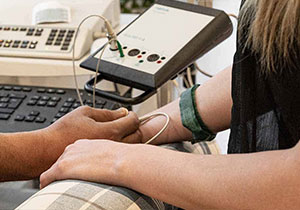
Trauma-related illness
A post-traumatic stress disorder is a mental illness that develops after short-term (acute) or chronic traumatization. Traumatization is the result of one or more severely stressful events to which a person has been exposed. Trauma-related illnesses include acute stress reactions, post-traumatic stress disorder (PTSD) and lasting personality changes. In a broader sense, depression and dissociative disorders can also be seen as consequences of traumatization.
Forms of post-traumatic stress disorder — what forms of post-traumatic stress disorder are there?
Differentiation between acute and chronic trauma consequences
The consequences of a trauma can be differentiated according to whether they are acute or chronic. Acute consequences of trauma include post-traumatic stress disorder, acute stress reactions and permanent personality changes. Chronic trauma can manifest itself in those affected as anxiety disorders, borderline disorders or depression, among other things.
Acute stress reaction
An acute stress reaction occurs directly as a result of a traumatizing event. The person affected shows symptoms such as wandering, loss of orientation or sometimes has a memory gap. Palpitations, sweating, headaches or inner restlessness and irritability can also occur. An acute stress reaction can sometimes develop into post-traumatic stress disorder.
Post-traumatic stress disorder (PTSD)
A stress disorder is the result of a severely stressful, one-off or prolonged traumatic experience. It usually develops within six months of the event and usually comprises three typical symptoms: Hyperarousal as “easy startle”, flashbacks as uncontrolled re-experiencing of the trauma, and avoidance of situations or activities that could evoke the traumatic experience.
Persistent personality change
A persistent personality change can be the result of a trauma and can last for at least two years after the trauma. The affected person shows changes because they isolate themselves socially due to the traumatic situation, are afraid of the outside world and hardly allow any feelings. Maintaining relationships or forging new bonds often fails. At the same time, he places high expectations on other people to recognize his personality change as a result of the trauma. Frequent sickness, an unstable mood and hypochondria are also often associated with this.




